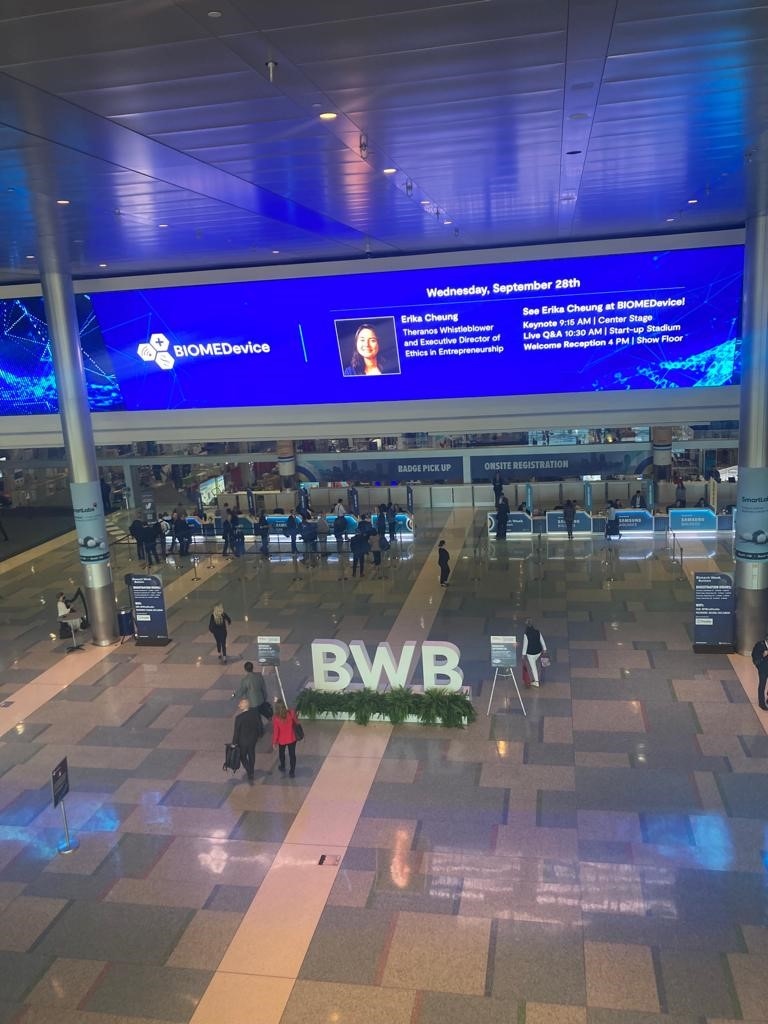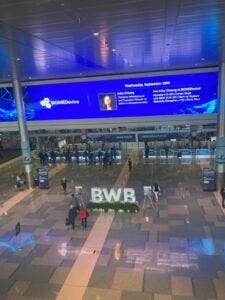Content Spotlight
Podcast: MilliporeSigma says education vital to creating unbreakable chain for sustainability
MilliporeSigma discusses the importance of people, education, and the benefits of embracing discomfort to bolster sustainability efforts.

Scott Bertch from heart disease gene therapy developer Tenaya Therapeutics told BWB delegates modular systems have the ability to accelerate facility delivery.
When thinking of gene therapies “manufacturing is one of the biggest problems,” Bertch, executive director, clinical manufacturing site head at Tenaya Therapeutics told delegates at the BPI conference, part of Biotech Week Boston 2022.
While there are pros and cons associated with both inhouse and outsource manufacturing models (Tanaya has previously spoken positively about the former for cell and gene therapy makers) together they share a similarity of being expensive “no matter how you do it.”

BWB site. Image c/o Millie Nelson
With the added difficulty of producing advanced therapies, meaning that you are “always in a state of development” and therefore it is “hard to know how to scale out when you are not sure what your next product will be.” You must know and be certain about what strategy you are wanting to select, said Bertch.
he firm launched operations at its 94,000 square-foot modular facility located in Union City, California. Bertch said that the plant was completed in just nine months and claimed that “modular systems [have] become an incredible tool to accelerate delivery facility.”
Other companies such as BioNTech have also deployed modular manufacturing systems. In February, the German biotech introduced BioNTainer, a cleanroom built from six ISO sized containers for messenger RNA (mRNA) vaccine delivery in Africa.
Though the modular facility process may be faster, Bertch was clear to point out that while the “use of modular systems and components in GMP facility design is becoming more common, they [do] present new challenges.”
For example, when a firm decides to go fully modular, you enable more paralleled paths but then limit your opportunities to make changes once the design approval has taken place, which can “severely impact cost and schedule.”
Despite conventional construction being more flexible with later changes, Bertch told delegates it does take longer to complete in the field and that modular engineered wall systems can “cut field construction time.” Furthermore, modular systems are built in a “controlled factory environment” rather than “site work / shell construction.”
You May Also Like